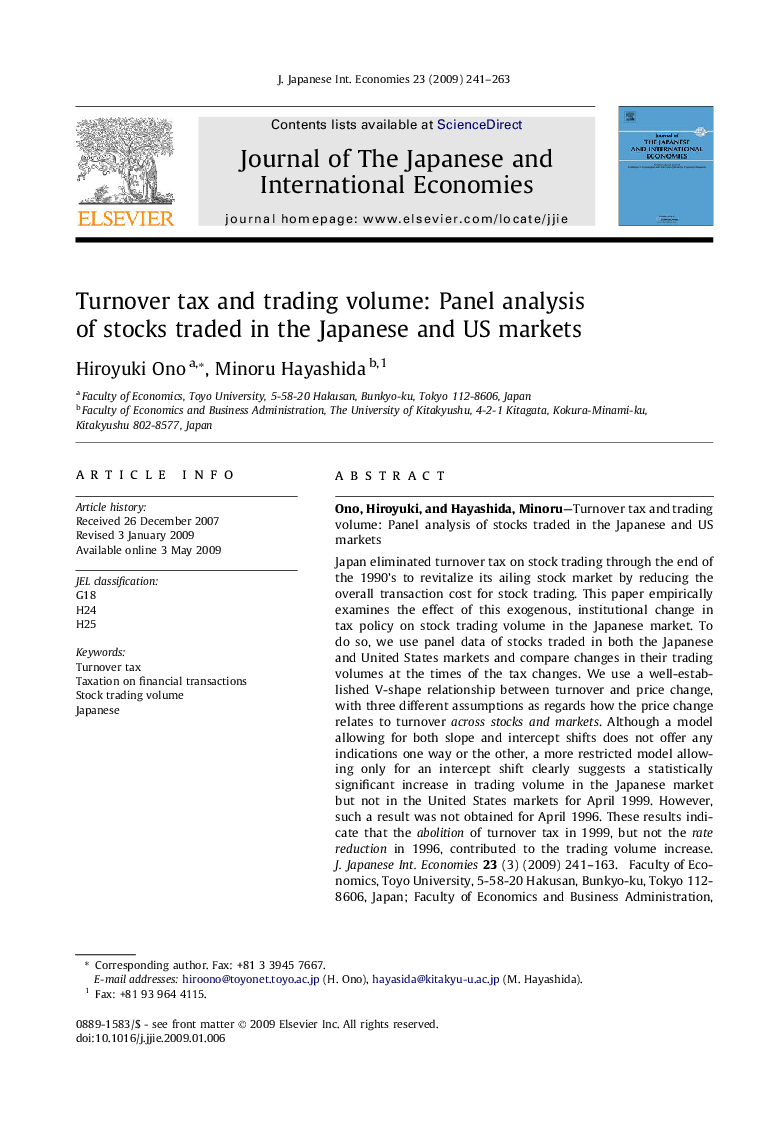| Article ID | Journal | Published Year | Pages | File Type |
|---|---|---|---|---|
| 965043 | Journal of the Japanese and International Economies | 2009 | 23 Pages |
Abstract
Japan eliminated turnover tax on stock trading through the end of the 1990's to revitalize its ailing stock market by reducing the overall transaction cost for stock trading. This paper empirically examines the effect of this exogenous, institutional change in tax policy on stock trading volume in the Japanese market. To do so, we use panel data of stocks traded in both the Japanese and United States markets and compare changes in their trading volumes at the times of the tax changes. We use a well-established V-shape relationship between turnover and price change, with three different assumptions as regards how the price change relates to turnover across stocks and markets. Although a model allowing for both slope and intercept shifts does not offer any indications one way or the other, a more restricted model allowing only for an intercept shift clearly suggests a statistically significant increase in trading volume in the Japanese market but not in the United States markets for April 1999. However, such a result was not obtained for April 1996. These results indicate that the abolition of turnover tax in 1999, but not the rate reduction in 1996, contributed to the trading volume increase.
Related Topics
Social Sciences and Humanities
Economics, Econometrics and Finance
Economics and Econometrics
Authors
Hiroyuki Ono, Minoru Hayashida,
